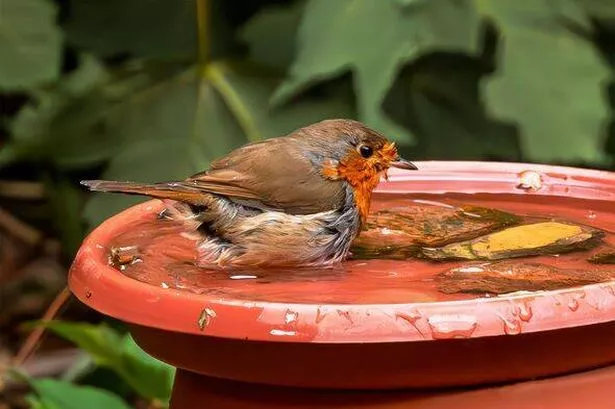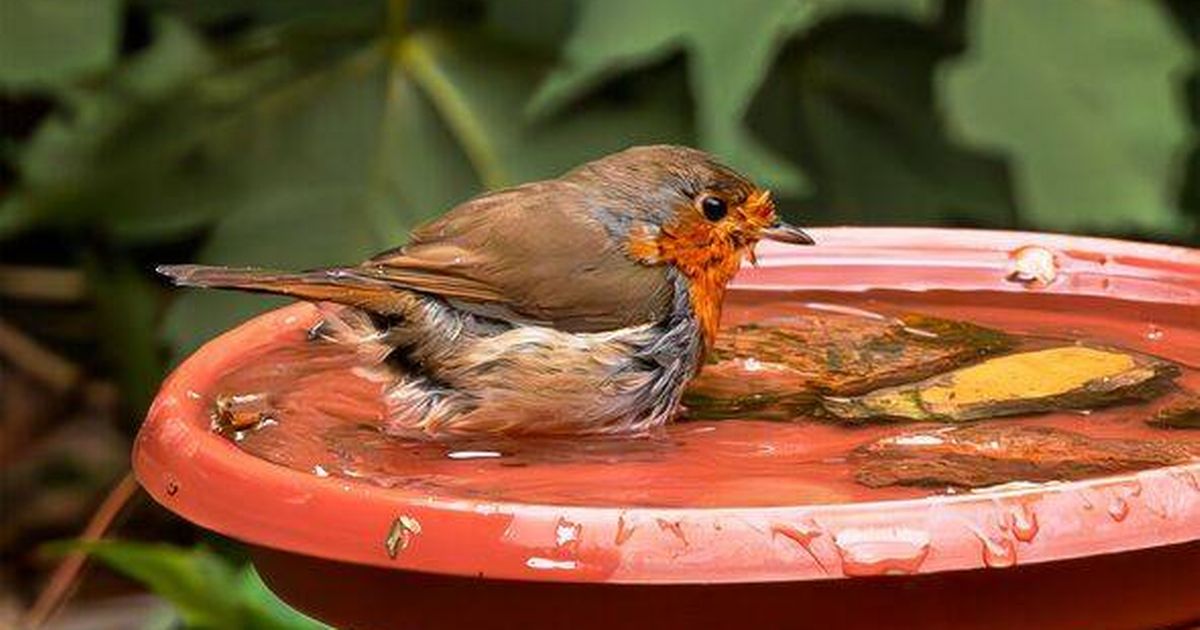Robins can really struggle to find enough food in September.Lynn Love Lifestyle Writer and Katherine McPhillips
12:33, 09 Sep 2025
 Robins are unlikely survive in winter if they are underweight as they need to build up their reserves to keep warm(Image: Getty)
Robins are unlikely survive in winter if they are underweight as they need to build up their reserves to keep warm(Image: Getty)
Robins are the nation’s favourite bird, so spotting one in our gardens tends to brighten our day. Some people believe they represent a connection with loved ones who are no longer here, bringing meaning to the popular saying ‘when robins appear, loved ones are near’.
During autumn, robins’ food sources tend to dry up, but there are ways gardeners can help them thrive during the colder months. Robins typically attempt to build fat during September to help them survive the winter. However, during this process, they also begin to shed their old feathers, meaning they start to need extra nutrients and energy.
Robins that do not bulk before temperatures drop are much less likely to survive. Wildlife experts at Beaky Bites have revealed there are simple ways to help Robins build up their winter reserves, and you’ll likely have them in your cupboard. According to Beaky, the stunning birds love peanuts.
One expert said: “Peanuts and sunflower hearts are healthy options Robins love. These foods provide the proteins and fats they need. Sunflower hearts are particularly nutritious and are a Robin favourite during breeding season.
“You can offer peanuts and sunflower hearts by scattering them on the ground or in platform feeders.
“These foods are not only healthy but also very attractive to robins, so add them to your feeders to increase interaction from robins.”
The Express reports that peanuts, sunflower hearts, and seeds are packed with fat and provide a good source of calories at a time when robins need to be eating more.
They will give robins the energy and protein they need to grow new feathers, which will help keep them warm and protect them from frost once the colder weather arrives.
However, it should be noted that robins cannot eat salted or roasted peanuts, as they cannot process salt and it can lead to dehydration, kidney failure or even death.
You should only ever feed birds natural and unprocessed food due to their delicate digestive systems, so make sure to only feed robins raw peanuts.
 Join the Daily Record WhatsApp community!
Join the Daily Record WhatsApp community!
Get the latest news sent straight to your messages by joining our WhatsApp community today.
You’ll receive daily updates on breaking news as well as the top headlines across Scotland.
No one will be able to see who is signed up and no one can send messages except the Daily Record team.
All you have to do is click here if you’re on mobile, select ‘Join Community’ and you’re in!
If you’re on a desktop, simply scan the QR code above with your phone and click ‘Join Community’.
We also treat our community members to special offers, promotions, and adverts from us and our partners. If you don’t like our community, you can check out any time you like.
To leave our community click on the name at the top of your screen and choose ‘exit group’.
If you’re curious, you can read our Privacy Notice.
Once you have your bird-safe peanuts, you will also need to chop them up or crush them into small pieces. Robins have soft peaks and cannot easily crack open nuts, and whole peanuts can also be a choking hazard for small birds.
Then, simply scatter the peanut pieces on the low surface in your garden like a tray or table, and robins will keep coming back so you see lots of these beautiful birds this autumn.
The expert said: “Robins prefer ground feeding, which means they will feed from trays placed on the ground or directly off the ground itself amongst the grass. This is how they naturally feed and makes them feel more comfortable and safe.”
Robins also love dried mealworms if you want to buy them food, as these insects are packed with nutrients and proteins they naturally eat in the wild.
You can also feed robins suet pellets or balls, which are made if animal fat and perfect for helping robins build up their fat reserves and keep their energy to survive the upcoming cold weather.

